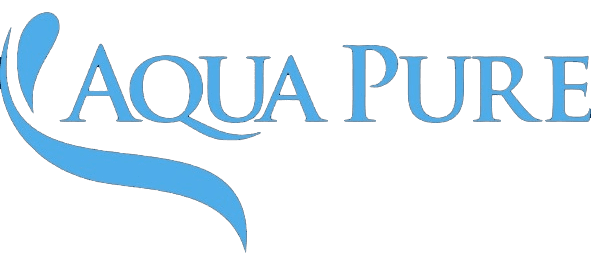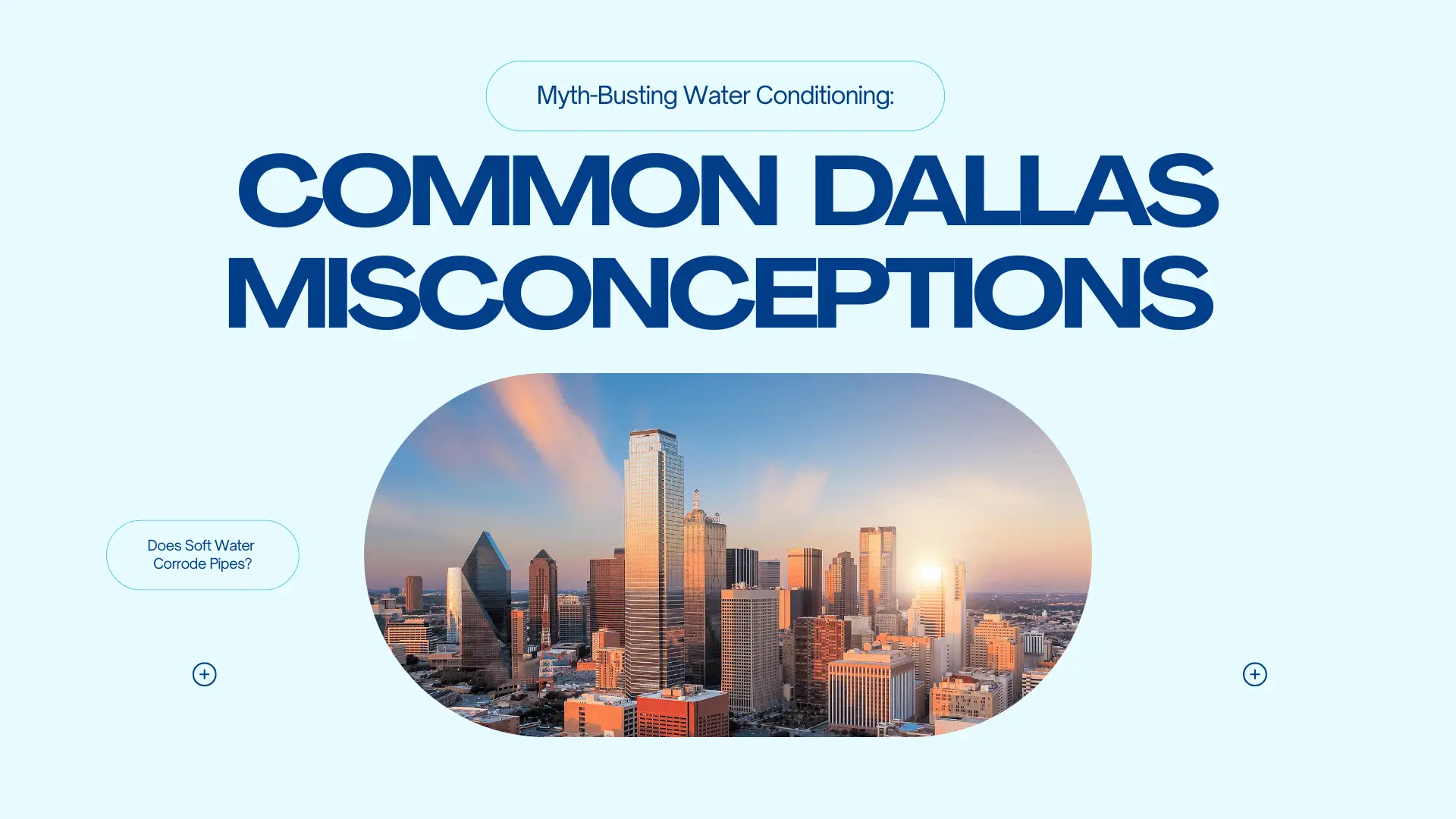When it comes to water quality in Dallas, there is no shortage of myths and misconceptions. From rumors about soft water damaging pipes to confusion about what contaminants are really in tap water, Dallas homeowners are often left scratching their heads. In this article, we’re going to take a friendly but expert look at water conditioning, debunk some common myths, and provide actionable advice on how to ensure clean, safe water for your family.
Dallas Water: What’s Actually in It?
Dallas gets most of its water supply from surface reservoirs. While the city works hard to keep water safe, it doesn’t mean the water coming out of your tap is free from issues. Here are some common water contaminants Dallas residents should be aware of:
- Hard Water Minerals (Calcium & Magnesium): The Dallas area is known for having hard water. These minerals don’t pose a health risk but can cause scale buildup in pipes, shorten appliance lifespan, and leave spots on dishes and glassware.
- Chlorine & Chloramine: Added as disinfectants, chlorine and chloramine can leave water tasting or smelling unpleasant. Long-term exposure can also dry out skin and hair.
- PFAS (“Forever Chemicals”): Though not unique to Dallas, PFAS contamination has become a growing concern nationwide. These man-made chemicals are linked to health issues when present in drinking water.
- Sediment and Metals: Aging pipes can introduce rust, lead, or other particulates into your water system.
Understanding what’s in your water is the first step to making smart decisions about filtration and conditioning.
Myth 1: Soft Water Corrodes Pipes
One of the most common misconceptions about soft water is that it causes pipe corrosion. Let’s clear this up:
- Fact: Soft water does not corrode pipes. What it does is remove the protective layer of mineral scale left behind by hard water. In rare cases, if a plumbing system is already old and deteriorating, the removal of scale can expose existing weak spots, making leaks appear.
- Reality in Dallas: Most modern homes are built with copper or PEX piping, which are resistant to corrosion. A properly installed water softener will not damage these materials.
So if you’ve been holding off on installing a water softener because of this myth, rest easy—your pipes are safe.
Myth 2: Dallas Tap Water is “Good Enough”
Yes, Dallas water meets federal safety standards. But that doesn’t mean it’s the healthiest option for your home.
- Hard water buildup can cause appliances like dishwashers and water heaters to fail early.
- Chlorine may keep bacteria at bay but leaves your water tasting and smelling unpleasant.
- Families sensitive to contaminants may still experience skin irritation or digestive discomfort.
Think of it this way: just because water is legally safe doesn’t mean it’s the best quality for your family’s health and your home’s plumbing.
Myth 3: All Water Filters are the Same
Another common misconception is that a cheap pitcher filter works just as well as a whole-home filtration system. In reality, different filters serve different purposes:
- Carbon Filters: Great for improving taste and odor by removing chlorine.
- Reverse Osmosis (RO) Systems: Highly effective at removing contaminants like PFAS, heavy metals, and fluoride.
- Water Softeners: Specifically designed to remove hardness minerals, preventing scale buildup.
- Whole-House Filtration: Customizable to address multiple concerns, including sediment, chlorine, and chemical contaminants.
The best solution for your Dallas home will depend on your water test results and your family’s needs.
Myth 4: Water Softeners Waste Water and Salt
Modern water softeners are much more efficient than older models. With the right system:
- Regeneration cycles use less salt and water.
- Advanced controls ensure the system only regenerates when needed.
- With proper settings, waste is minimal while benefits are maximized.
In other words, water softeners today are eco-friendlier and more cost-effective than ever before.
Why Water Testing is Essential
The only way to know what’s really in your Dallas water is to test it. A professional water test can:
- Measure hardness levels
- Detect chlorine, metals, and other contaminants
- Identify pH balance and other factors affecting plumbing
At Aquapure, we offer free water testing so Dallas families can understand exactly what’s in their water before choosing a system.
How Aquapure Solves Dallas Water Challenges
Aquapure has been helping Texas families for over a decade, and we’re proud to offer solutions that directly address the concerns of Dallas homeowners:
- Free Installation and Support – Our certified technicians handle everything from setup to ongoing maintenance.
- Easy Financing – Flexible payment plans make clean water affordable for every household.
- $0 Down, Buy Now – Pay Later – No upfront costs, just better water today.
- Lifetime Warranty – Systems built to last, backed for life.
- Texas Owned, Family Operated – Strong solutions designed for Texas homes.
- 10+ Years of Trust – Proven track record serving local families.
- Customized Solutions for Every Home – From whole-home filtration to specialized softeners, we tailor systems to your unique needs.
Whether you’re worried about chlorine, scale, or PFAS, Aquapure designs the right solution for your home.
Taking Action: What You Can Do
- Schedule a Free Water Test – Find out what’s really in your water.
- Consider Your Family’s Needs – Do you struggle with dry skin? Appliance failures? Stains or buildup? These clues help guide your system choice.
- Choose a Customized Solution – Work with experts like Aquapure to design a system that matches your water and your budget.
FAQ: Dallas Water Conditioning Questions
Q: Does soft water really feel slippery?
A: Yes, soft water can feel silkier because it rinses away soap better. That slippery feeling is actually your skin being truly clean without soap residue.
Q: How hard is Dallas water compared to other cities?
A: Dallas water is considered moderately to very hard, typically ranging from 150-300 ppm. This makes a water softener especially beneficial.
Q: Will a water softener remove chlorine from my water?
A: Not by itself. For chlorine removal, you’ll want a carbon filter or a whole-house filtration system.
Q: Is a water softener safe for my septic system?
A: Yes, modern systems use minimal salt and water, making them safe for septic systems.
Q: How often do I need to add salt to a softener?
A: Typically once a month, depending on your household size and water use.
Q: Can I finance a system if I’m on a tight budget?
A: Absolutely. Aquapure offers easy financing with $0 down and simple payment plans.
Final Thoughts
Dallas residents face unique water challenges, from hard water scale to chlorine taste to emerging contaminants like PFAS. The good news? You don’t have to settle for “good enough” water. By busting myths and understanding the facts, you can make informed choices that protect your home, your health, and your peace of mind.
Ready to learn more? Visit Aquapure’s water filtration and water softener pages, or request your free water test today.



